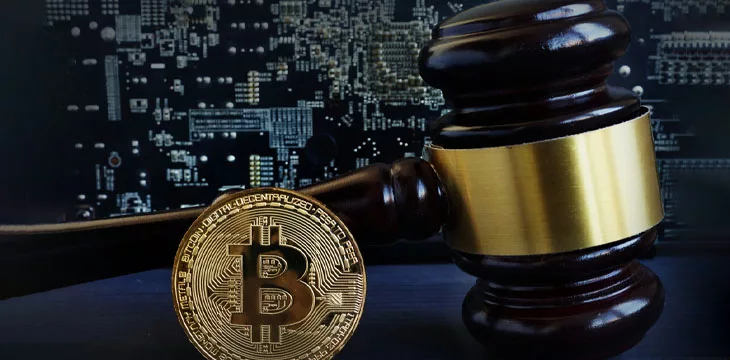|
Getting your Trinity Audio player ready...
|
For several years now, CoinGeek has been reporting the steady march of global regulators as they clamp down on illegal activity and lax regulatory compliance in the digital currency industry.
One element of the industry that has been struggling particularly hard recently is peer-to-peer digital currency exchanges. So far, in 2023, Finnish P2P exchange LocalBitcoins folded in February after 10 years, and Paxful, established in 2015, ceased operating on April 4.
Peer-to-peer exchanges allow buyers and sellers to trade digital currencies directly without requiring intermediaries to be involved. Both exchanges had been warned by U.S. regulators and law enforcement agencies; LocalBitcoins by FinCEN for being linked to Russian-affiliated exchange Bitzlato which the U.S. accused of enabling sanctions violations, and Paxful by the New York Department of Financial Services (NYDFS) for not having robust enough AML/KYC processes.
The two companies cited regulators’ increased scrutiny as among the reasons for their shutdown. Paxful ex-CEO Ray Youssef said, “they grow more suspicious every day.”
Almost all digital currency exchanges are caught in the regulatory dragnet
Peer-to-peer exchanges aren’t the only ones struggling as regulators tighten the noose on the industry that so flagrantly violated all the rules for so long. Across the world, regulators are coming down hard on digital currency exchanges, including some of the biggest names in the business.
Covering just some of the action from recent times, we reported on the following:
Binance lost its GBP payment provider after Paysafe (NASDAQ: PSFE) cited tightening U.K. regulations as its primary reason to bail on the exchange. In the past year alone, Binance was fined by the Dutch central bank, came under fire in Dubai and Australia, and was warned by Italian and Lithuanian authorities that providing investment services in those countries isn’t allowed.
Not long after CEO Jesse Powell announced he would be stepping down, Kraken abruptly shut down its Abu Dhabi office and high-tailed it out of the Middle Eastern country. It is reportedly under investigation for facilitating Iran sanctions violations, and it was fined $30 million by the Securities and Exchange Commission (SEC) in February and agreed to stop offering staking services in the U.S.
Crypto.com also lost its payment processor after the Bank of Lithuania ordered Transactive Systems UAB to stop providing services to clients in the virtual currency industry. Many have wondered if Crypto.com is next on the hit list for U.S. regulators.
Yet, that’s not all. Coinbase (NASDAQ: COIN) has received a Wells notice from the SEC for allegedly trafficking in unregistered securities, while Bittrex is facing an SEC complaint that its entities have been acting as broker-dealers, exchanges, and clearing agencies since their 2014 launch while failing to register with the U.S. regulator. Bittrex had previously been fined $30 million in December 2022 related to deficiencies related to its sanctions compliance procedures. In March, Coinbase stated that it is preparing for imminent legal action as the regulator clamps down on securities violations across the board.
Clearly, regulators have had enough of the Wild West era in which digital currency exchanges, issuers, and others viewed themselves as somehow immune to existing financial regulations and laws. While P2P exchanges LocalBitcoins and Paxful have already thrown in the towel, centralized exchanges, in most cases, are putting up more of a fight. For example, Coinbase CEO Brian Armstrong has repeatedly stated that the SEC is wrong in its assertion that most digital currencies are securities. It remains to be seen how this plays out.
The regulatory landscape isn’t shifting—it has always been this way
Many digital currency media outlets and companies caught in the spotlight of regulators try to paint the ‘shifting’ or ‘changing’ regulatory landscape as reasons for their shutdowns or failures.
Yet, truthfully, the regulations themselves aren’t changing. These financial laws and rules have always existed. It’s just that, after a period of playing catch up, regulators and law enforcement agencies across the world have finally caught on to how the technology works, what role exchanges play, how things like peer-to-peer exchanges and DAOs really work, and just how much fraud, deception, and lies characterize the industry as we have known it so far.
As the noose tightens, expect more exchanges to fold, lose banking partners and payments processors, get fined for violating AML/KYC regulations, and generally just get stomped on by regulators for playing fast and loose with the law. Contrary to popular belief in the industry, it is not above the law, and even smaller countries can cause major problems for exchanges that don’t respect the rules.
Digital currencies were never any different from the rest of the financial world. Of course, if they had listened to Satoshi Nakamoto, who has meticulously explained how and why he designed Bitcoin the way he did and where all of this was inevitably heading, they’d have been prepared for this moment.
Watch: Time to redefine regulation & law with the BSV blockchain

 02-25-2026
02-25-2026 




